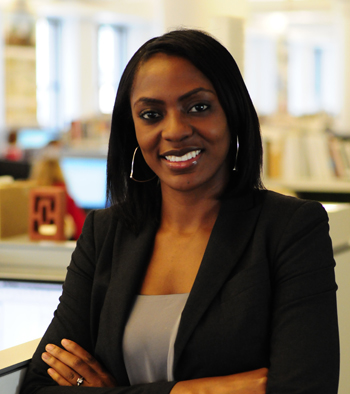
What is your name, age, and location?
Lisa Rohleder, 43, Portland, Oregon.
What is your profession?
I became a licensed acupuncturist on purpose and a social entrepreneur accidentally.
What did you study in school and what degrees do you have?
I have an AB in Classical Greek from Bryn Mawr College (lots of scholarships) and a Master’s in Acupuncture and Oriental Medicine. If you had an impractical degrees contest, I think I would win.
What was your first job?
Scooping ice cream at Baskin-Robbins.
Who or what inspired you to break into your current line of work?
I became an acupuncturist and realized belatedly that the business model for acupuncture was only designed to treat wealthy people, which meant that I couldn’t treat anybody I knew. Part of my motivation for becoming an acupuncturist in the first place was that I was around a lot of untreated mental and physical illness when I was growing up. I wanted to be able to take care of people that I could relate to; I wanted to treat janitors with joint pain, factory workers with depression, patients and conditions that I understood. That required radically changing the business model for acupuncture. One thing led to another; once I was treating working class patients, they wanted to refer their friends and family members in other places to acupuncture, and they couldn’t, so then it became a question of persuading other acupuncturists to change their business models too.
Name/describe what has been your most rewarding project so far?
Setting up the People’s Organization of Community Acupuncture, which is a multi-stakeholder cooperative designed to make affordable acupuncture accessible to more people. The economics of health care in this country just don’t work, in so many different ways. Multi-stakeholder cooperatives are a fairly recent innovation, much more common in Europe and Canada than in the US. And nobody’s ever tried to apply a multi-stakeholder cooperative to something like acupuncture, as far as I know. It was really fun and exciting to try to build something on an entirely new foundation.
Name/describe one incident when being a woman has helped your career?
I wouldn’t call it an incident, but I think being a woman made it easier for me to rethink some things about how I was practicing acupuncture and make changes. A lot of what acupuncture is most effective for is what Western medicine would call “subclinical” stuff: stress, anxiety, headaches, PMS, back pain that doesn’t show up on a scan. A condition can be “subclinical” or even psychosomatic and still make someone extremely miserable. In my experience, a lot of male acupuncturists are preoccupied with proving that acupuncture is real medicine; they want to be called “doctor”, they want to be recognized, the whole business model is based on wanting to keep pace with the Western medical professionals. And in the acupuncture profession, like a lot of other professions, most of the rank and file is female while most of the leadership is male. So I heard a lot about what was supposed to be important to me as an acupuncturist from men in positions of authority; I heard a lot about the right way to do things if you want to be respected. I think it was easier to reject all that because I was a woman, especially a woman from a working class background. I knew I wanted to treat people who weren’t respected for problems that weren’t respected either. As a woman, I was used to not being respected, so that didn’t stop me.
Name/describe one incident when being a woman has hindered your career?
When I opened my clinic, I was 33 and looked younger. It’s hard to be taken seriously as a young female business owner, period, let alone when you are trying to rework the foundations of the business you’re in. It’s not just the responses you get from other people – amusement or disbelief or whatever – it’s all the internalized sexist voices screaming that you don’t know what you’re doing, who do you think you are, money and business are for men, etc.
Who is your role model or mentor (alive or dead)?
That’s an interesting question. I have personal heroes – especially Muhammad Yunus, who founded Grameen Bank and created the term “social business” and who is I think the original, archetypal social entrepreneur. And I’ve had huge amounts of support, especially from my partner, without whom all this would not have happened. But as far as a role model or a mentor, that is something I always really wanted and something I had to accept not getting. For what I most wanted to do, there wasn’t anybody available to consult or to emulate or to get good advice from. It was good for me to realize that I just had to make it up as I went along, there was no other way, and it would still be OK.
If you could give one piece of advice to a woman starting out in your field, what would it be?
Be sure you really want this. Both acupuncture and social entrepreneurship are not things you can do on the side; they require real focus and commitment. Certain kinds of work you have to love enough to do for their own sake. Don’t be romantic or dreamy about it, really be honest with yourself about how much you like to work. If you don’t like to work, find something easier. If you do like to work, that’s perfect, because there’s an endless amount of it here.
Links:
The People’s Organization of Community Acupuncture
– Interview by Elena Rossini
– Special thanks to Marie Arnberg.


Join the discussion One Comment